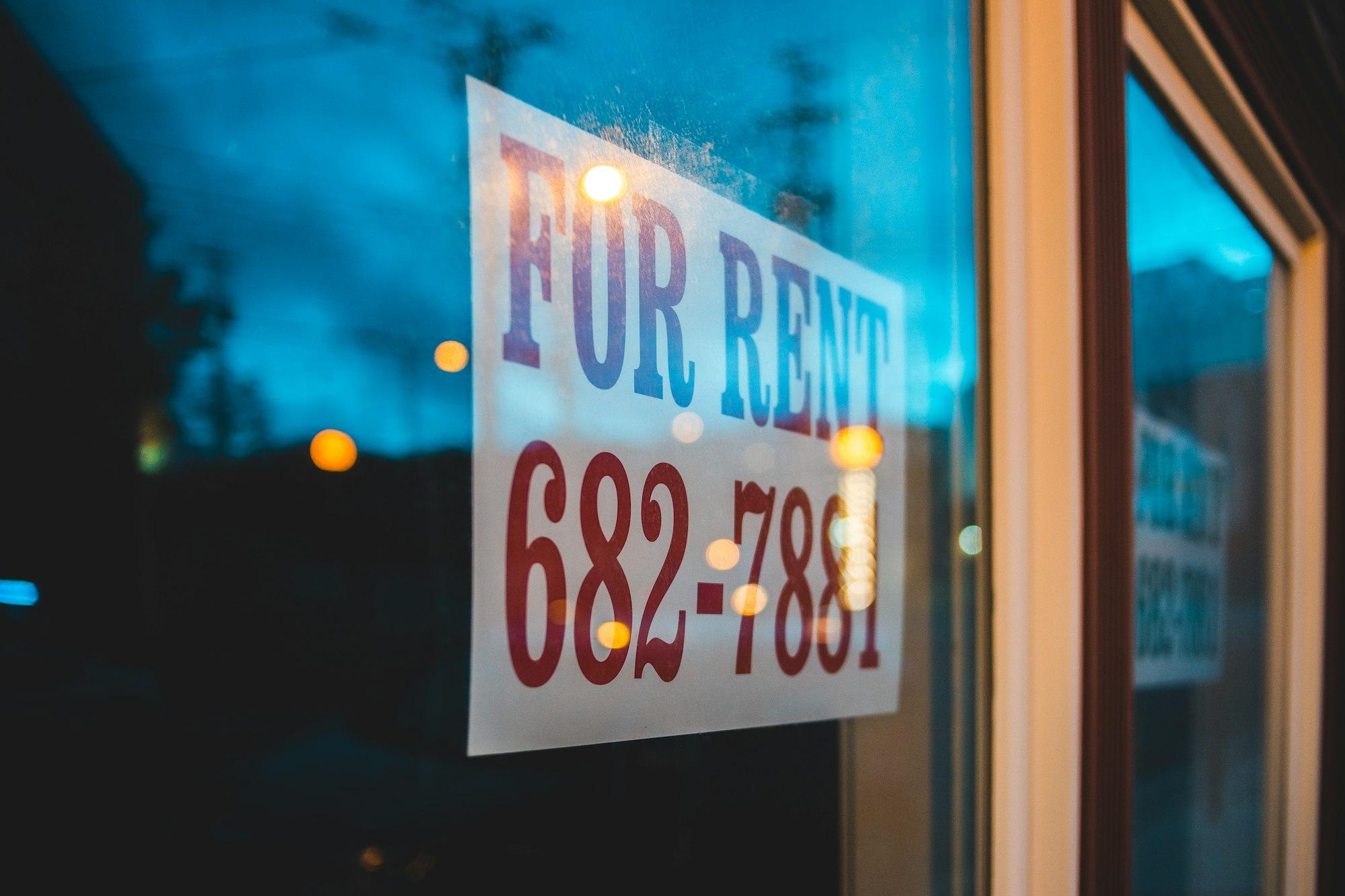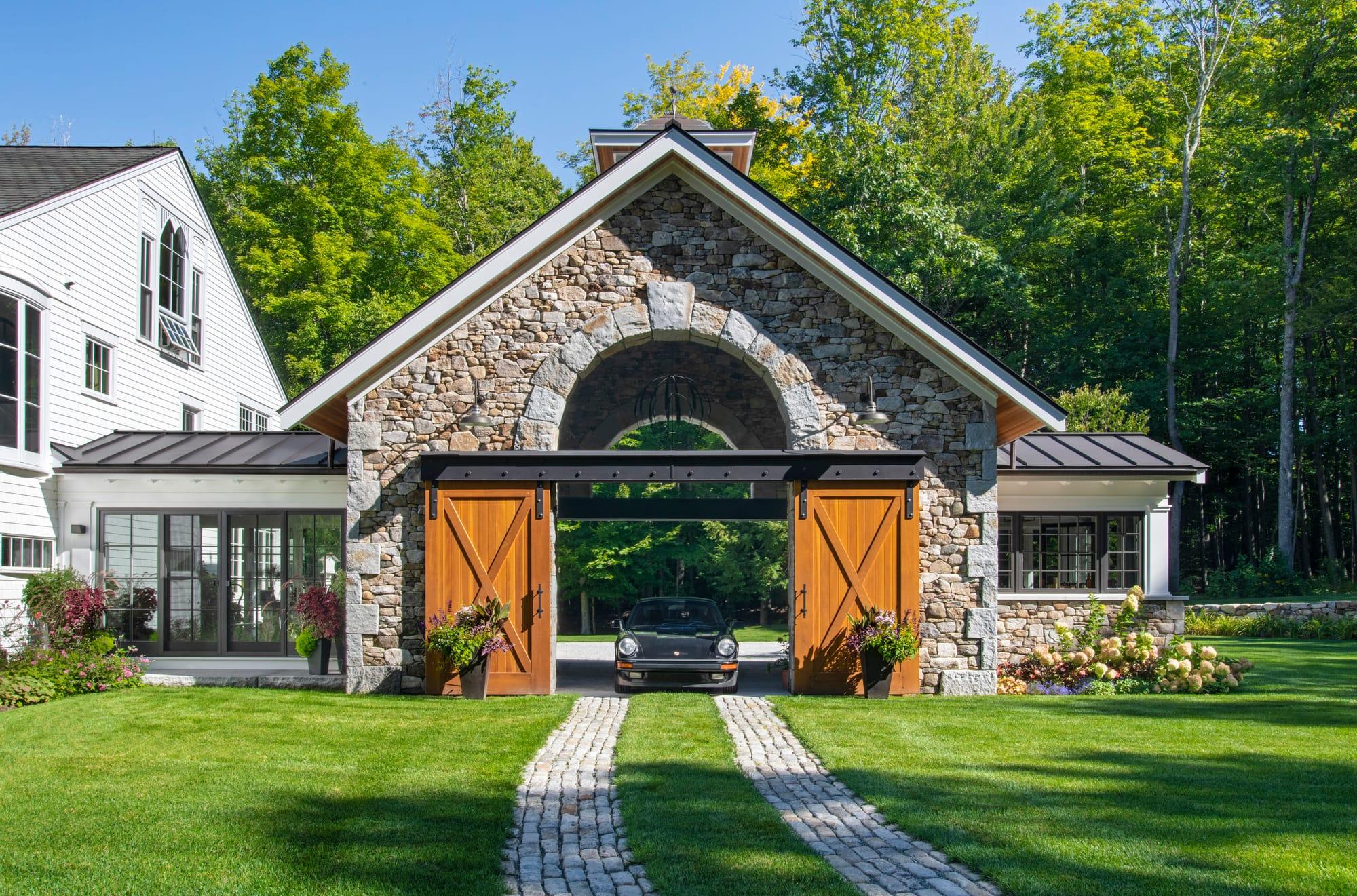The Surprising Benefits of Renting Furniture: Is It Right for You?
Furniture rental offers flexibility, convenience, and eco-friendly benefits, ideal for short-term living or style experimentation. However, higher long-term costs and limited customization are drawbacks. Evaluate your needs to decide if renting suits your lifestyle.

Photo by Erik Mclean / Unsplash
In a world where flexibility and convenience often take precedence, the concept of furniture rental is gaining traction. Once seen as a niche service, renting furniture has evolved into a mainstream option, offering benefits that resonate with the modern consumer. But is it the right move for your living situation or budget? Let's delve into the practicalities, perks, and considerations of renting furniture to help you decide if it's a smart choice for your lifestyle.
What is Furniture Rental?
Furniture rental services provide customers with the ability to lease furniture for a set period, allowing them to furnish their living spaces without the commitment of purchasing items outright. This concept spans everything from essential living room sets to unique statement pieces. Companies like Feather, Cort, and Rent-A-Center have helped shape this market, catering to individuals who prioritize flexibility and convenience.
The Benefits of Renting Furniture
- Flexibility for Short-Term Living Renting furniture makes sense for those in temporary living situations. Whether you're a college student, a young professional on a short-term assignment, or someone in transitional housing, renting lets you set up a comfortable space without the long-term commitment or financial burden of buying new furniture.
- Convenience Unlike purchasing and assembling furniture, rental services typically handle delivery and setup. This ease is a major advantage for people who move frequently, such as military families or individuals in industries requiring periodic relocation. When it's time to move, the service will often pick up the furniture, saving you the hassle of transporting heavy pieces.
- Variety and Style Updates For those who enjoy updating their home’s aesthetic regularly, renting offers an appealing solution. You can refresh your living space by swapping out pieces seasonally or when new styles catch your eye. This flexibility can make a rental service more attractive than committing to long-term purchases that may go out of style or fail to suit your evolving preferences.
- Lower Upfront Costs Buying furniture often involves significant upfront costs, while renting requires a more manageable monthly payment. For those on tight budgets, this can be a crucial factor, allowing for a well-furnished space without a major financial strain. Renting also allows for high-quality pieces that might be out of reach for purchase.
- Sustainability The environmental benefits of furniture rental often go unnoticed but are significant. Renting supports a circular economy by keeping items in use longer and reducing the number of disposable pieces ending up in landfills. For environmentally conscious consumers, this can be a compelling reason to choose renting over buying.
Who Can Benefit from Renting Furniture?
- Urban Dwellers: People living in big cities tend to move more frequently due to changes in jobs, roommates, or rental agreements. For this demographic, renting furniture provides the adaptability they need without the weight of ownership.
- College Students and Young Professionals: Furniture rental is ideal for those who might change living situations often or have tight financial constraints. Renting offers a practical solution for setting up a space that feels like home without a large initial expense.
- Expats and Temporary Residents: Those relocating for international assignments or temporary work stints benefit greatly from renting. Moving furniture across borders is both costly and complicated, making rentals an efficient alternative.
- Those Experimenting with Design: Renting allows you to test out furniture styles without a full commitment. This approach can help individuals discover their preferences without investing in a piece that they might not love long-term.
The Downsides to Consider
While the benefits are clear, there are also potential drawbacks to renting furniture:
- Long-Term Cost Comparison: Over an extended period, renting can become more expensive than purchasing. It’s essential to weigh the monthly rental cost against the potential long-term savings of owning your furniture.
- Limited Customization: Rental furniture often comes with restrictions, such as no modifications or personalized alterations. If you enjoy customizing your furniture to match your specific taste, renting may feel limiting.
- Potential for Damages and Fees: Accidents happen, and with rental agreements, there may be financial repercussions for damages beyond normal wear and tear. Be sure to read the fine print on liability for damage when signing a contract.
How to Choose a Furniture Rental Service
When considering furniture rental, keep these factors in mind:
- Delivery and Pickup Policies: Ensure the service offers convenient options for delivery and pickup.
- Quality of Furniture: Read reviews and inquire about the condition and quality of the items offered.
- Rental Terms: Review the contract for details on rental periods, fees, and policies related to damage or early returns.
Evaluating the Available Furniture Rental Options
When looking into furniture rental, it's essential to understand the nuances of different service providers. Here’s an overview of some popular furniture rental companies and what sets them apart:
| Provider | Strengths | Ideal For | Downsides |
|---|---|---|---|
| Feather | Eco-friendly, stylish, short terms | Urban dwellers, eco-conscious | Higher short-term cost |
| Cort | Reliable, office solutions | Professionals, corporate use | Higher costs for premium items |
| Rent-A-Center | Flexible payment, rent-to-own | Budget-conscious, whole-home solutions | Higher long-term cost |
| Brook | High-end, luxury options | Upscale clients | Expensive |
| Fernish | Modern, tech-driven | Young professionals | Limited service areas |
Buying vs. Renting: When Each Option Makes Sense
For those trying to decide between buying and renting, here’s a quick guide:
- Renting Makes Sense: When you need short-term furniture, want to try out styles before committing, or need budget-friendly, lower upfront costs.
- Buying is Better: If you plan to stay in one place for the long term, want customization options, or aim to make a lasting investment in your home.
| Factor | Renting | Buying |
|---|---|---|
| Upfront Cost | Lower | Higher |
| Long-term Cost | Potentially Higher | Usually Lower |
| Flexibility | High | Low |
| Customization | Limited | Full |
| Convenience | High | Moderate |
Conclusion
Renting furniture can offer the flexibility and convenience that many modern consumers value, but weighing the benefits against long-term costs and personal needs is crucial. Consider trialing a rental service for a few months to see if it aligns with your lifestyle, and use the decision-making checklist above to guide your choice.
Quick facts
What is the point of renting furniture?
The point of renting furniture is to offer flexibility and convenience for those in temporary living situations or who move frequently. It allows you to furnish a space without a long-term commitment, avoiding the large upfront costs of purchasing furniture.
What does it mean to lease furniture?
Leasing furniture means temporarily using furniture for a set period in exchange for regular payments. Unlike purchasing, leasing allows you to use the items without full ownership, offering flexibility and the option to return or swap pieces as needed.
Does renting furniture help your credit?
Renting furniture can help your credit if the rental company reports your payment activity to credit bureaus. Consistently making on-time payments may positively impact your credit score, but missed payments could have the opposite effect.
What is furniture rental?
Furniture rental allows customers to lease furniture for a specific period without committing to buying. This service offers flexibility for those who move frequently or want short-term furnishing solutions, with popular providers including Feather, Cort, and Rent-A-Center.
Who benefits most from renting furniture?
Renting furniture benefits urban dwellers, college students, expats, and those in transitional housing. It’s ideal for people who move often or have budget constraints, as well as individuals looking to experiment with home design without long-term commitments.
What are the main benefits of renting furniture?
The main benefits of renting furniture include flexibility for short-term living, lower upfront costs, convenience with delivery and setup, and the ability to refresh home aesthetics easily. Renting also supports sustainability by promoting the reuse of furniture.
What are the drawbacks of renting furniture?
Drawbacks of renting furniture include potential long-term costs being higher than buying, limited customization options, and the risk of fees for damage beyond normal wear and tear. It's important to read the contract terms before committing.
Is renting furniture more cost-effective than buying?
Renting furniture can be more cost-effective for short-term needs due to lower upfront costs. However, over a long period, renting can become more expensive than buying. It’s essential to compare rental costs against the potential long-term savings of owning.
Why is furniture rental considered sustainable?
Furniture rental supports sustainability by extending the lifecycle of items, reducing waste, and promoting a circular economy. This helps prevent furniture from ending up in landfills and encourages environmentally conscious consumption.
What factors should I consider when choosing a furniture rental service?
When choosing a furniture rental service, consider delivery and pickup policies, furniture quality, rental terms, and potential fees for damage or early returns. Research reviews and service details to ensure the best experience.
How does furniture rental compare to rent-to-own options?
Furniture rental is for temporary use with no ownership, whereas rent-to-own allows you to make monthly payments toward eventual ownership. Rent-to-own can be more costly long-term but offers the benefit of owning the furniture after payments are completed.
What types of furniture can be rented?
You can rent a wide variety of furniture, including essential living room sets, bedroom pieces, office furniture, and unique statement items. Companies like Feather and Cort offer both functional and stylish options tailored to various needs.
When is buying furniture better than renting?
Buying furniture is better when you plan to stay in one place for the long term, desire customization options, or want to make a lasting investment. Over time, ownership usually has lower costs compared to continuous rental payments.

Geoff Abraham
Co-founder & President of Spoken
Geoff is the co-founder and President of Spoken. He is a Dad. He holds a BA from UT Austin (Plan II) and an MBA from Stanford. Geoff has built several successful businesses, including a bicycle taxi business in San Francisco which he ran for 10 years with his wife, Mimosa. He is an executive coach, and he actively invests in seed-stage startups via The Explorer Fund.
Read more

